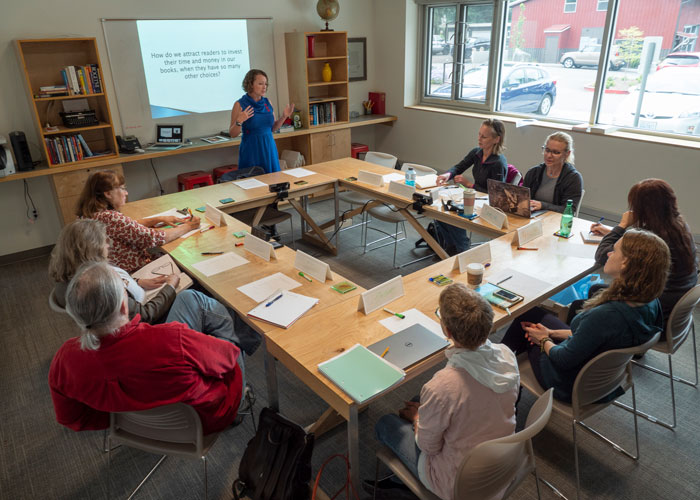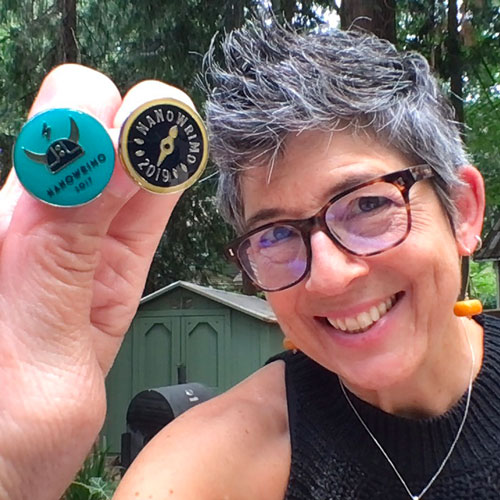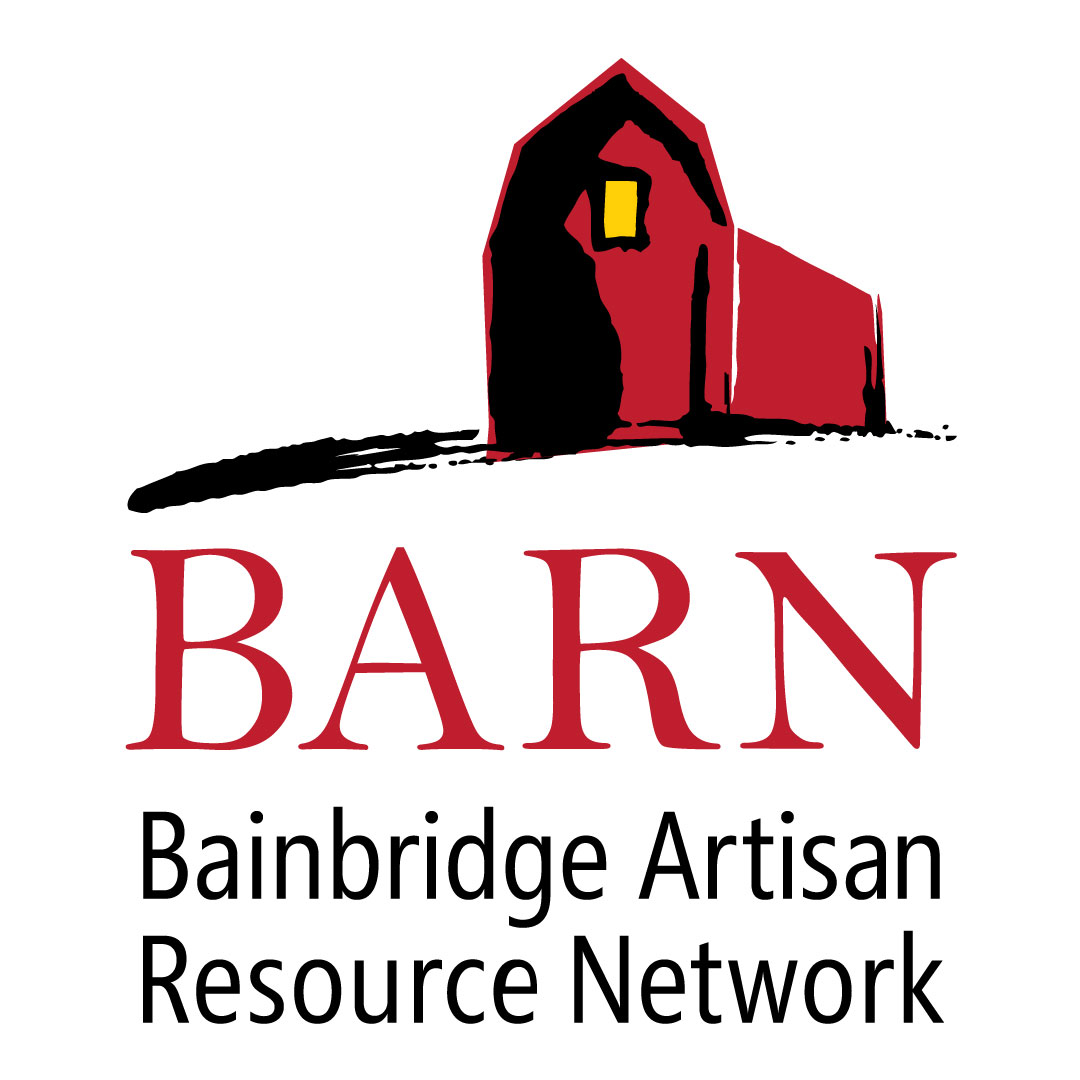Find Your Voice and Start Writing!
Whether you are beginning a writing journey, mastering your craft, or exploring the path to publication, BARN Writers’ Studio is for you. From our Write Now online practice sessions to deep dives into fiction, memoirs, poetry, screenplays, and children’s books, BARN can take your writing to the next level. Members can also use the studio as a quiet place to write.
Upcoming Writers’ Studio Events
Fiction and Nonfiction
Novels, screenplays, memoirs, freelancing – there are many avenues for writers to explore. BARN’s Writers’ Studio was created to give you the support you need to keep writing. From classes in character development, dialogue, travel writing, and journaling to book clubs and writers’ groups, BARN writers’ community attracts experienced instructors from around the country.


Poetry
Derived from the Greek poisis “making,” poetry is a craft in which words are building blocks. Often rhythmic, just as often not, poetry stirs our emotions. BARN offers opportunities to find poetry in nature, to create art inspired by poetry, and to read your poetry to others. Our Poetry Toolbox series offers guidance in everything from lines and stanzas to rhymes and repetitions.
Publishing
You’re making good progress on your novel, or historical fiction, or memoir. What happens when you’re “done?” There are so many options for publishing your work – knowing what they are and where your work fits are key. BARN offers instruction in both the craft and business of writing. We can show you how to find an agent, navigate self-publishing, and understand your options in today’s publishing environment.

Open Studio
Use the Writers’ Studio to work on your own projects during open studio hours. Learn more »
FAQ
Find answers to your questions about working or taking classes in the BARN Writers’ Studio. Learn more »
Volunteer
Help the Writers’ Studio thrive and explore our volunteer opportunities »
Writers Studio News
Celebrate National Poetry Month with Local Poets and Writers
National Poetry Month, observed annually in April, was established by the Academy of American Poets in 1996 to promote poetry appreciation and awareness across ...Full story »
Coming this Spring: New Ways to Connect with Other Writers
Coffee and Chat, Writer's Group Speed Dating, Write Now, and Open Mic Are you interested in connecting with other writers? The first Writers Studio Coffee and ...Full story »
Submit Your Poetry to Ars Poetica at BARN
Never miss BARN News! Subscribe today to receive it in your inbox. The call for poetry submissions to our fifth annual Ars Poetica at BARN is officially ...Full story »
Studio Lead

Jessica Dubey
Writers Studio Resources
Follow us on Twitter and join our Facebook group
Contact Us
Message us using our form
Writers’ Studio office phone: 206-842-4475 x215
















